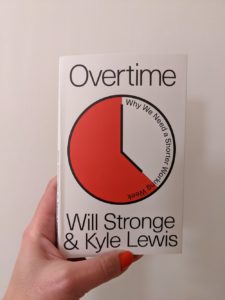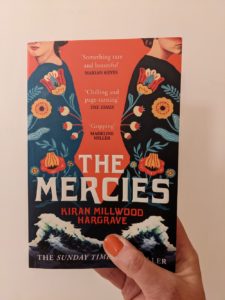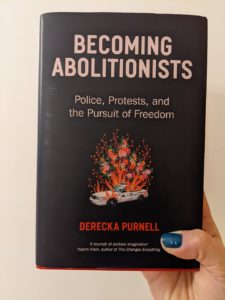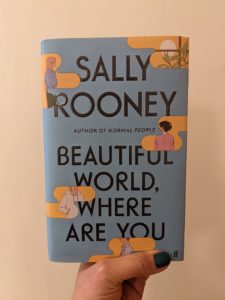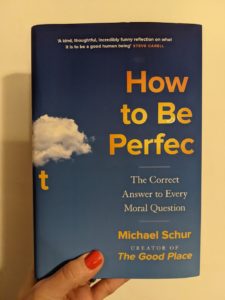 Four Stars
Four Stars
Best for:
Fans of The Good Place. People who want to be better.
In a nutshell:
TV writer and Creator of The Good Place shares what he learned about moral philosophy during that show, breaking it down using funny analogies and stories.
(Note: My review may have some spoilers for The Good Place. If you’ve never seen the show, I suggest you fix that immediately.)
Worth quoting:
“[F]or a meritocracy to work — for a society to properly value and celebrate the hard work and individual success — the people within the society need to start from the same point of origin. Otherwise, the cream isn’t rising to the top — the people who were the closest to the top already are rising to the top, and the whole concept of meritocracy crumbles to dust.”
“For people deeply invested in the way things are, any change would mean confronting decisions they’ve made that created or sustained the troubling reality.”
“When we do something good, we want credit, dammit. We want a little gold star.”
Why I chose it:
The Good Place is 100% my favorite television show of all time. Like, it’s not even a competition. Part of that is because I studied moral philosophy in graduate school (I actually squealed when ‘What We Owe to Each Other’ showed up in an early episode, and ran to get my copy to show my partner) and part of that is because it’s forking hilarious while also being extremely thoughtful. When I saw this book, I knew I had to order it and read it immediately.
via GIPHY
Review:
What a book. What a delightful, optimistic, educational, funny book.
via GIPHY
Alright, so Michael Schur, who created a Good Place that I really hope exists, has taken what he learned about philosophy from that experience and written an interesting and easy to understand book about moral philosophy and ethics. It is a VERY fun read, which is impressive, since it covers virtue ethics (Aristotle), deontology (Kant), utilitarianism (Mill and Bentham), Consequentialism (Scanlon), and Existentialism (Sartre and Camus).
via GIPHY
Plus it includes some nice, deep burns of Ayn Rand. Those are always welcomed.
via GIPHY
Schur starts with the easier stuff (“Should I punch my friend in the face for no reason?”), introducing different concepts slowly, so the reader can get used to one and see how it applies in a situation. By the later chapters, when we’re dealing with more intense stuff (e.g. can you keep supporting a person or company that does bad things and also makes things you love, aka the Chic-fil-a Conundrum), he brings together multiple theories to see what they would say about the decisions we could make, and opines on why some options might be better than others.
via GIPHY
I especially appreciate his take on the ideas of what we owe to each other, because he talks extensively about how what we owe does depend on who we are and where we are in our lives. He has a running thread about a 27 cent tip on a $1.73 cup of coffee. He rightly points out that to someone who doesn’t have a lot of money, that 27 cents is generous. But for someone like him, who is extremely privileged and has a lot of money, he should be giving more. Doing more. He owes it to society. As do people with even more wealth and privilege than Schur like, say, Jeff Bezos.
via GIPHY
Obviously I loved this book, so why isn’t it 5 stars? Well, let’s get back to the Chic-fil-a Conundrum. Because part of the book — not a huge part, but definitely at least a chapter — is devoted to Peter Singer. Now, I have read some of Singer’s work in the past, and I found a pre-CBR review I wrote of one of his works that I obviously didn’t assess critically. I should have done my homework, because that guy is a mess. He’s definitely … consistent, but that consistency leads him to support eugenics. Dude is SUPER ableist, to a deeply disturbing degree. Which is a big bummer, because he also happens to have some interesting ideas about where we should target charitable giving.
via GIPHY
Schur references this a bit in a footnote (a footnote that comes in ten pages into the section on Singer), but basically makes it sound like he almost respects how hard Singer sticks to his beliefs even as they lead to some despicable outcomes (making Singer a pretty big failure from a virtue ethics perspective). Schur even suggests that people don’t like Singer because he makes us feel bad about our own actions. I mean sure, probably that factors in it a little. But mostly its the eugenics. And apparently Schur even wrote the introduction to one of Singer’s books? COME ON BUDDY. Like, I know it’s a bit meta, but writing a book about moral philosophy and choosing to include one of the more problematic living philosophers isn’t great. I’m sure there’s another philosopher he could have included for that section.
via GIPHY
Some other bits of note:
This book has a lot of footnotes and those footnotes are GEMS. I love a book that takes a moment to redirect the reader to a footnote, and that footnote says something like ‘Todd notes that Sartre would also say that addiction is a choice. Mike notes that Sartre needs to cool it a little.’
via GIPHY
I wish this book had been available to me before I started grad school because honestly, Schur described Kant and the categorical imperative in 10 pages better than many philosophy professors. Like, seriously, if I could go back and take my moral philosophy course exam again, I think I might crush it.
via GIPHY
Recommend to a Friend / Keep / Donate it / Toss it:
Recommend to a Friend and Keep


